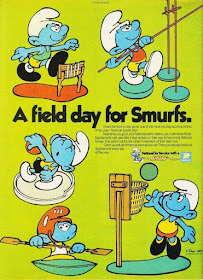On 18th September 1980, Macdonald Futura published
Dark Forces as a hardback in the UK, a horror anthology that turned out to ground-breaking in a variety of ways, not least for helping open the door to the horror boom that followed in the decade.
 |
Futura paperback, 1986 edition
cover scan of my copy |
It all started when Kirby McCauley went to dinner with Anthony Cheetham, the publisher of Futura Publications Ltd in England. He suggested McCauley, then an agent with an impressive stable of clients, edit “a anthology of new stories of horror and the supernatural” which he would publish. McCauley writes in his introduction that Cheetham “liked my only other anthology of original stories,
Frights, and seemed to feel I was the person to do a more ambitious similar volume for him”. After some indecision as to whether he was the right man, he decided “to assemble [the] anthology with the same scope and dynamism of Harlan Ellison’s
Dangerous Visions, but in the supernatural horror field”. Ellison’s groundbreaking 1967 anthology chose stories that were rooted in science fiction but willingly went off at tangents to “break new ground, say and do things in new and varied and daring ways”. Cheetham immediately grasped the concept and agreed to publish the book.
McCauley “approached by letter or telephone near every writer living who had tried his or her hand at this type of story and whose writing” he liked. He also “deliberately sought variety, stories ranging wide across the horizon of fantasy fiction” because, he felt, “nothing seems…more boring than an anhtology in one key, having similar backdrops or styles, or which are all variations on a narrow theme.”
From one of his more successful clients, Stephen King, he pursued
The Mist, which would close the anthology and also took the “opportunity to meet Isaac Bashevis Singer”, the Polish-born Jewish writer who won the Nobel Prize in 1978. A look at the table of contents shows a wide range of terrific writers, some just coming into their own at the time, some who wouldn’t have been considered horror but all of them producing fantastic work.
“I set out to offer as many of the subjects and moods and general directions the fantastic tale has tended traditionally to take as I could, but hopefully in imaginative, fresh ways.”
The table of contents:
Dennis Etchison -
The Late Shift
Isaac Bashevis Singer -
The Enemy
Edward Bryant -
Dark Angel
Davis Grubb -
The Crest Of Thirty-Six
Robert Aickman -
Mark Ingestre: The Customer's Tale
Karl Edward Wagner -
Where The Summer Ends
Joyce Carol Oates -
The Bingo Master
T. E. D. Klein -
Children of the Kingdom
Gene Wolfe -
The Detective of Dreams
Theodore Sturgeon -
Vengeance Is
Ramsey Campbell -
The Brood
Clifford D. Simak -
The Whistling Well
Russell Kirk -
The Peculiar Demesne
Lisa Tuttle -
Where the Stones Grow
Robert Bloch -
The Night Before Christmas
Edward Gorey -
The Stupid Joke
Ray Bradbury -
A Touch of Petulance
Joe W. Haldeman -
Lindsay and the Red City Blues
Charles L. Grant -
A Garden of Blackred Roses
Manly Wade Wellman -
Owls Hoot in the Daytime
Richard & Richard Christian Matheson -
Where There's a Will
Gahan Wilson -
The Trap
Stephen King -
The Mist
 |
| 1981 Bantam Books edition |
Locus magazine called
Dark Forces "the most important horror collection of the year" and I certainly wouldn’t disagree with that. I didn’t find it until 1984 or so (thank you, thank you, thank you Kettering library) and thought it was astonishing, later picking up the paperback so I didn't have to keep taking it out of the library. Already a fan of Stephen King, I instantly loved
The Mist and there was so much here to enjoy it was a similar revelation for me as
Danse Macabre had been, a new list of great writers to explore and enjoy. It was the first time I’d read Dennis Etchison and his
The Late Shift led me to his own collections, a writer I would come to admire and read ever after.
 |
| Kirby McCauley |
As a young horror fan, discovering the genre in the early to mid-80s, you had to follow trails yourself and this quickly became a cornerstone for me (as was, later, Etchison’s
Cutting Edge anthology). It showed me that horror could be all manner of things, all manner of styles and that affected both my reading and writing habits.
* * *
Dark Forces won the World Fantasy Award for best Anthology/Collection in 1981 and Clive Barker, in
Faces Of Fear, said that reading the “great variation of horror stories” in the collection encouraged him to start writing the short stories that would come to make up his
Books Of Blood.
Kirby McCauley was born in Minnesota on 11th September 1941 and became a literary agent in the 1970s, representing the likes of Stephen King and George R. R. Martin. Helping to found the World Fantasy Convention in 1975, he also helped create the World Fantasy Awards and edited “Night Chills” (1975), “Frights” (1976) and “Dark Forces” (1980). He died on 30th August 2014, of renal failture associated with diabetes. George R. R. Martin wrote a moving tribute
on his livejournal.
Happy 40th,
Dark Forces.
sources:
my copy of
Dark Forces (McCauley's introduction)
Kirby McCauley information at Too Much Horror Fiction
Kirby McCauley obituary at Locus
Wikipedia












































